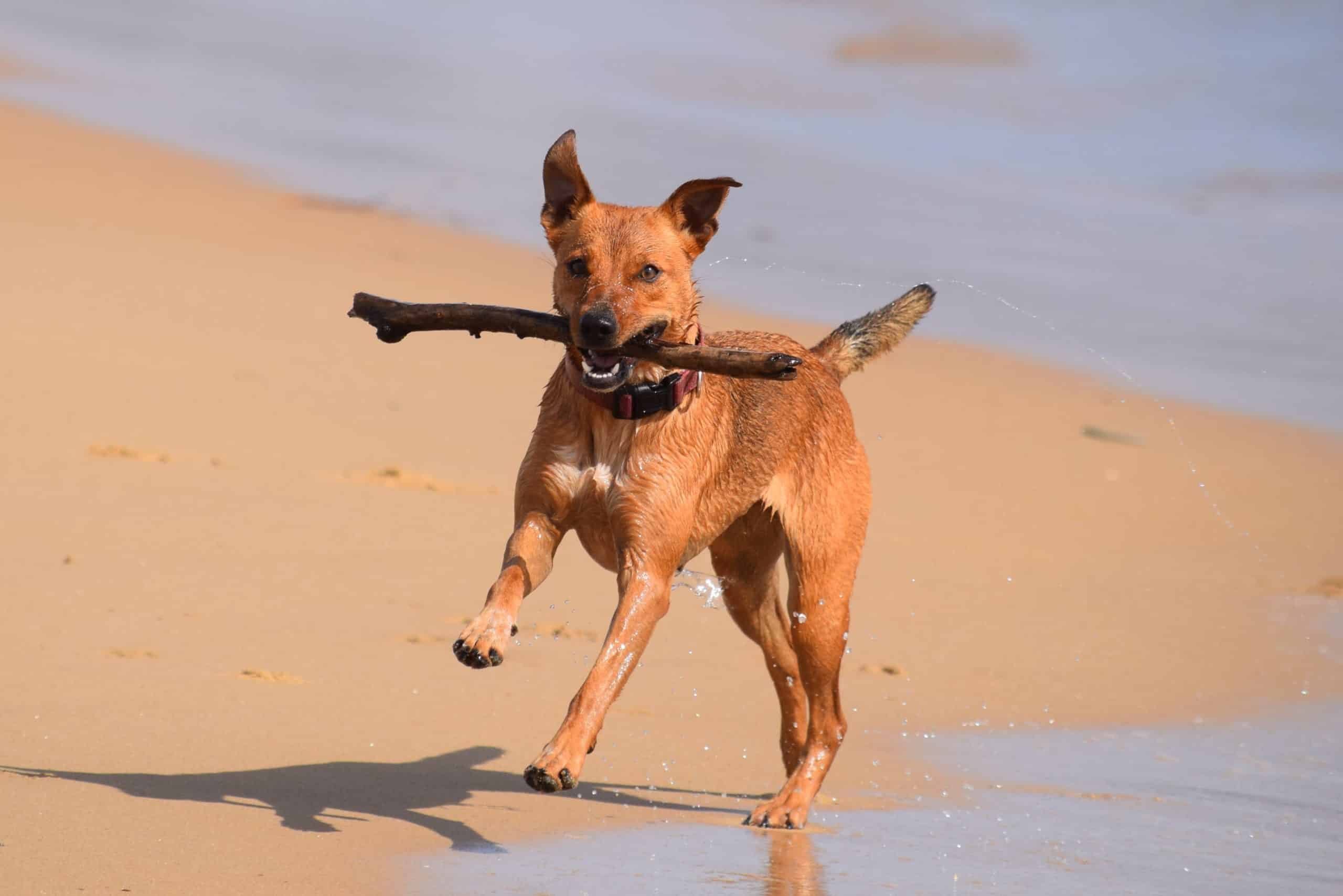Play is an essential part of a dog’s life. Whether that dog is a sprightly young pup raring to explore the world or a mature hound with a heart full of wisdom, playtime has a crucial role in their overall wellbeing. It does not just keep them physically fit but also stimulates their cognitive functions, influences their social skills, and even helps in training them. This article will dive deep into the importance of play in a dog’s life, emphasizing its role in shaping their behavior, social interactions, and overall health.
The Key Role of Play in Behavioral Training
Before delving into the nitty-gritty of playtime and training, let’s understand the key role of games in shaping a dog’s behavior. While play may seem like a simple, fun activity for your pet, it is a powerful tool that can teach them various life skills.
Lire également : How to care for a blind dog
Regular play can help in imparting critical obedience training to your dog. For instance, playing fetch can train them to follow your commands like “sit,” “stay,” and “come.” Similarly, hide and seek can sharpen their problem-solving skills. Training through play helps keep them engaged and receptive. Dogs often respond better to such positive reinforcement techniques, associating obedience with fun and rewards.
More importantly, structured play sessions give you an opportunity to establish yourself as a pack leader. Maintaining a certain level of control during playtime can ensure that your dog understands and respects your authority. Remember, for a dog, respect is not about fear but about trust and understanding.
Avez-vous vu cela : The benefits of animal-assisted therapy
The Significance of Play for Socialization
Play is equally vital for socializing your dog. Dogs are inherently social animals and need to interact with both humans and fellow dogs to lead a balanced life.
Engaging your dog in fun games encourages bonding and fosters a healthy relationship between the pet and the owner. Regular playtime ensures your dog sees you as a part of their pack, thus strengthening their loyalty and affection towards you.
On the other hand, playtime with fellow dogs is crucial for learning animal etiquette. Dogs learn to read and communicate via body language during play sessions. They learn about setting boundaries and respecting others’ limits. Such experiences also aid in curtailing any potential aggressive behavior and promote a well-rounded temperament.
Playtime as a Mode of Exercise
For your dog, playtime is not just about fun and games. It’s a means for them to burn off energy and stay fit. Dogs, particularly puppies, are bundles of energy. They need to channel this energy into something productive; otherwise, they may resort to destructive behavior like chewing on furniture or unnecessary barking.
Playing games like fetch, tug-of-war, or simply running around in the yard helps your dog stay active. It provides them with the right amount of exercise, which, in turn, keeps them healthy. Regular physical activity can prevent obesity, heart disease, and other health issues in dogs.
Remember, an active dog is a healthy dog.
Play as a Tool for Mental Stimulation
Last but not least, playtime serves as a crucial tool for mental stimulation in a dog’s life. Engaging in play not only keeps them physically active but also mentally sharp.
Interactive games like puzzle toys challenge your dog’s mind. It forces them to think and strategize, thus keeping their cognitive skills sharp. Similarly, treasure hunt games stimulate their natural hunting instincts and keep their senses sharp.
Mental stimulation through play is particularly essential for aging dogs. It helps in slowing down the onset of dementia and keeps their mind agile.
In Conclusion
Play is an integral part of a dog’s life. It’s not just about having fun and games. It’s about imparting behavioral training, encouraging social interactions, providing physical exercise, and ensuring mental stimulation. So, make sure to include regular play sessions in your dog’s daily routine. It will go a long way in ensuring they lead a happy, healthy, and well-rounded life.
Balancing Play and Nutrition for a Healthy Dog Life
Every pet parent wants their furry friend to lead an active and healthy life. This can be achieved through a balanced diet and regular play sessions. The old saying, “You are what you eat,” holds true for dogs too. Feeding your dog a nutritious diet is as crucial as engaging them in regular play activities.
A proper diet fuels your dog’s energy levels, allowing them to participate actively in play sessions. A diet rich in protein, fats, carbohydrates, vitamins, and minerals will keep your dog fit and energetic. Remember, an undernourished dog will lack the energy to play, while an overfed dog can become obese and lethargic.
Choosing the right dog food becomes key in this matter. It is always advisable to consult your veterinarian to understand your dog’s unique nutritional needs. Depending on the breed, age, and activity levels, your dog’s nutritional requirements may vary.
Don’t forget that hydration is essential for active dogs. Ensure your pup has access to fresh, clean water, especially during and after play sessions. This is crucial to prevent dehydration, especially on hot days. Remember, a well-nourished and well-hydrated dog will enjoy playtime more and reap its benefits fully.
The Impact of Play on Animal Behaviour
The impact of play on animal behaviour, particularly in dogs, is significant. Regular play sessions can shape a dog’s temperament, teach them social etiquettes, and even correct unwanted behaviours.
Dogs that play regularly are generally happier and less anxious. Play serves as an outlet for their pent-up energy, reducing stress and preventing behavioural issues like excessive barking or destructive chewing. It can also help dogs overcome shyness and boost their self-confidence.
Moreover, play helps dogs understand their boundaries. Games like tug-of-war or fetch teach them the concept of ‘mine’ and ‘yours,’ helping them understand property rights. Similarly, play sessions with other dogs teach them how to behave around their peers, curb aggression, and foster friendly behaviour.
In essence, play can shape your dog’s personality and ensure they are well-behaved, both at home and in public. It is a valuable tool in the arsenal of every responsible pet parent.
In Conclusion
The importance of play in a dog’s life cannot be understated. Be it for physical exercise, mental stimulation, behavioural training, or social interaction, play serves many purposes. Coupled with a balanced diet, regular play sessions contribute to a healthy and happy dog life.
As pet parents, it is our responsibility to ensure our dogs get ample playtime. So, incorporate different games in your dog’s daily routine and watch them grow into well-rounded pets. Keep in mind, your commitment to play with your dog will strengthen your bond, create mutual respect, and most importantly, it will make your dog feel loved and valued. After all, a happy dog makes a happy home.






